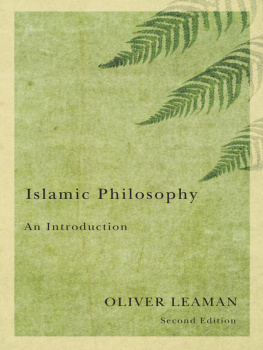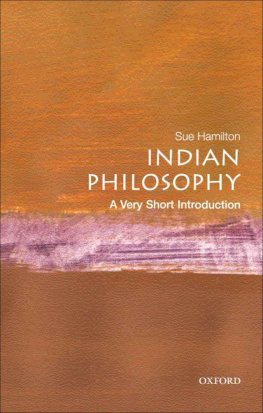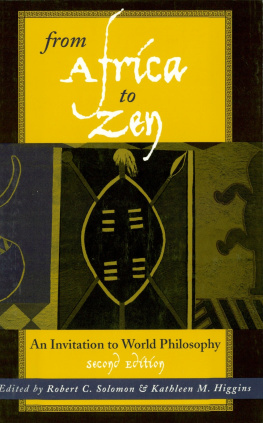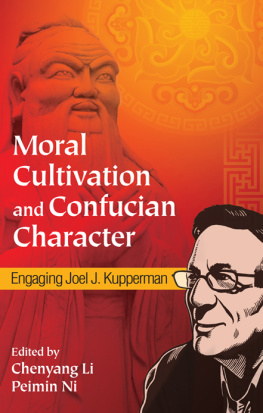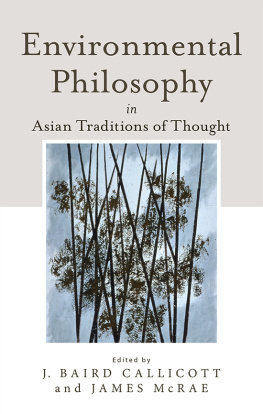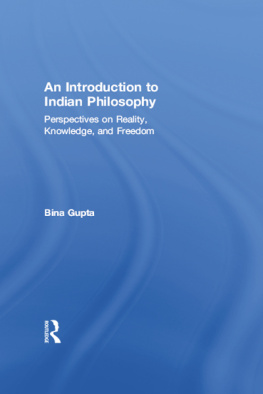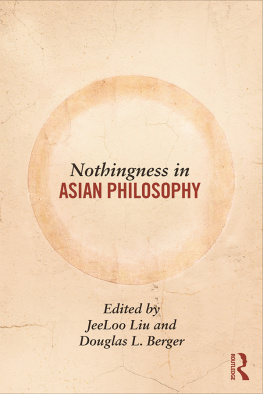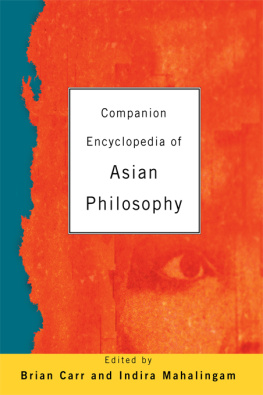MORALS AND SOCIETY IN ASIAN PHILOSOPHY
Curzon Studies in Asian Philosophy
Series Editors
Indira Mahalingam and Brian Carr
The Curzon Studies in Asian Philosophy address various themes in a manner that does not presuppose the specialist linguistic knowledge which has tended to make these traditions closed to the wider philosophical audience. Among the projected volumes, some reflect recent conferences and others are papers specially written for the series. Some have grown out of recent controversies in the Carfax journal Asian Philosophy.
Pali Buddhism
Edited by Frank Hoffman and Deegalle Mahinda
Friendship East and West
Philosophical Perspectives
Edited by Oliver Leaman
The Authority of Experience
Readings on Buddhism and Psychology
Edited by John Pickering
MORALS AND SOCIETY IN ASIAN PHILOSOPHY
edited by
Brian Carr
First Published in 1996
by Curzon Press
Published 2013 by Routledge
2 Park Square, Milton Park, Abingdon, Oxon OX14 4RN
711 Third Avenue, New York, NY, 10017, USA
Routledge is an imprint of the Taylor & Francis Group, an informa business
1996 Brian Carr
Typeset in Sabon by LaserScript Ltd, Mitcham
All rights reserved. No part of this book may be reprinted or reproduced or utilised in any form or by any electronic, mechanical, or other means, now known or hereafter invented, including photocopying and recording, or in any information storage or retrieval system, without permission in writing from the publishers.
British Library Cataloguing in Publication Data
A catalogue record of this book is available from the British Library
Library of Congress Cataloguing in Publication Data
A catalog record for this book has been requested
ISBN 13: 978-0-700-70345-6 (hbk)
Contents
Lenn E Goodman
Takashi Koizumi
Alistair D Swale
David Loy
John Magnus Michelsen
David E Cooper
Ian Whicher
Michael Zammit
Daniel Meyer-Dinkgrafe
Frank R Podgorski
Xiao Wei
Robert E Allinson
Preface
The articles included in this collection constitute in effect the proceedings of the First Conference of the recently formed European Society for Asian Philosophy, which was held at the University of Nottingham during August 1993. The articles explore moral and social philosophical issues in the Indian, Chinese, Japanese and Islamic philosophical traditions, both ancient and modern.
The authors of the articles have suitably revised their contributions in the light of the very constructive and lively discussion that was definitive of the First Conference, which in itself gave so much encouragement for the future of the Society. The Second Conference of the Society was held at the University of Exeter in early August 1995 on the theme Persons in Asian Philosophy and its proceedings will be published in the Curzon Studies in Asian Philosophy in due course. A Third Conference is already being planned for August 1997, and is likely to be held at the University of Malta.
Some of these articles have already appeared in the journal Asian Philosophy, and are included with the permission of Carfax Publishing Company: those by Robert E Allinson, David E Cooper, Takashi Koizumi and Frank R Podgorski appeared in Asian Philosophy, Vol.4, No.2, 1994; those by John Magnus Michelsen and Ian Whicher appeared in Asian Philosophy, Vol.5, No.1, 1995.
The newly launched Curzon Studies in Asian Philosophy is an ideal format for these proceedings and I am very grateful for the encouragement of the publishers, Malcolm and Martina Campbell. Other collections for the Curzon Studies in Asian Philosophy series are in press or under preparation, which are not conference proceedings but special compilations of newly written or previously published papers.
Generous assistance with the First Conference of the Society was provided by David Green of Carfax Publishing Company from printing and distributing advertising materials to helping with the expenses of our keynote speakers. Assistance was also gratefully received from Curzon Press, from Edinburgh University Press, Macmillan Press, Routledge and others. I would also like to acknowledge the enormous help and support provided by Indira Mahalingam during the formation of the Society and the planning of its conference series.
Brian Carr
Editors Introduction
Across all philosophical traditions, Western or Asian, a central preoccupation has always been with the fundamental questions of moral and social philosophy, questions which link abstract philosophical enquiry with practical issues of how we should conduct ourselves in our personal and social life and how we can best organise our political institutions. Some traditions have emphasised the personal side, such as Daoism and earlier forms of Buddhism; some have given greater emphasis to the social and political, such as Confucianism and the Islamic tradition. But one thought which emerged clearly from these presentations at the conference and the discussions that followed was that the personal and the social are deeply intertwined. The moral philosophy of the Bhagavad Gt is just one of the most explicit attempts to integrate both dimensions of human action.
Lenn E Goodman (a keynote speaker), in Humanism and Islamic Ethics The Curious Case of Miskawayh, traces the influence on Miskawayhs On the Refinement of Character of Aristotelian virtue ethics, and the influence Miskawayh had in turn on al-Ghazl. Goodman assesses what is lost and what is gained by al-Ghazls substitution of pietistic themes for Miskawayhs secularism and humanism.
Two papers explore the work of important figures in Japan. Takashi Koizumi (also a keynote speaker), in Fukuzawa Yukichi and Religion, follows the changes in that influential thinkers philosophy of religion. Fukuzawa first took a critical standpoint against Christianity from a Utilitarian point of view, came to admit a Unitarian Christianity for a while, but developed his own most original ideas in relation to Buddhism in his later years. Alistair Swales The Ethics of Watsuji Tetsur: A Reappraisal of Western and Eastern Influences discusses the contributions of a more recent Japanese philosopher, demonstrating the influence of Hegel in Watsujis social and ethical thinking.
Continuing the theme of East-West contrasts and influences, David Loy in Transcendence East and West raises the question whether south Asia and east Asia can be meaningfully treated together as the intuitive East; he argues on the contrary that the cultural polarity between the Indian-influenced cultures of south Asia and the Chineseinfluenced cultures of east Asia is more interesting than that between East and West. John Magnus Michelsen in The Place of Buddhism in Santayanas Moral Philosophy discusses the influence of Buddhist though on Santayanas formulation of the notion of post-rational morality, and also Santayanas claim that Buddhism suffers from a fundamental contradiction. David E Cooper in Is Daoism Green? examines the adoption, by contemporary advocates of deep ecology, of the Daoist attacks on convention or artifice: he argues that the implications of Daoism for our environmental attitudes are more complicated than they are usually taken to be.


